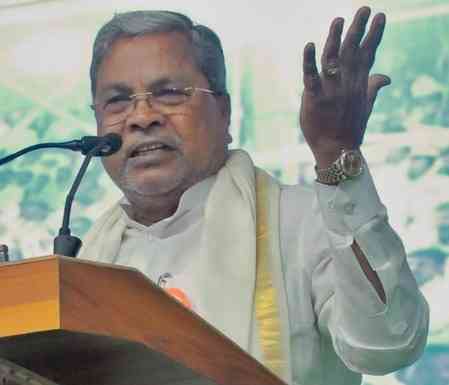Prices of wheat and atta continue to soar amid govt's price control measures
Despite the efforts by the government to check the spiralling prices of essential kitchen commodities, the average retail prices of these items including wheat and atta have seen a significant rise during the last one year.

New Delhi, Oct 8 (IANS) Despite the efforts by the government to check the spiralling prices of essential kitchen commodities, the average retail prices of these items including wheat and atta have seen a significant rise during the last one year.
The prices of wheat and related products including atta have gone up considerably in the last few months. As per traders in Delhi's wholesale markets, wheat prices have seen a spike, crossing a record Rs 2,570 per quintal due to lower supplies and robust demand.
According to traders in Delhi, the heat wave led to lower production of wheat this year impacting the domestic supplies of the agricultural produce.
Jai Prakash Jindal of Delhi's Lawrence Road Mandi said that the prices have been going up continuously. "Currently, wheat price is at Rs 2570 per quintal. It is likely to rise further to the level of Rs 2600 in the coming days during this festive season," he said.
The mandi prices were ruling at around Rs 2,150-Rs 2,175/quintal since the ban on wheat export was imposed on May 14, 2022.
Jindal said that production was on the lower side this year and the government did not stop export at the right time. "A lot of wheat was already exported by the time the government banned the export of wheat. It should have been done earlier," he said.
Traders said that while wheat prices have registered a rise of nearly 14-15 %, prices of atta have gone up by nearly 18-19 %.
They said that the reasons for the increase in wheat prices include various factors like the international demand-supply situation, rise in global commodity prices and the conflict between major wheat exporting nations like Ukraine and Russia.
On the other hand, rice prices have shown a decline in the last couple of days. Traders claimed that the prices of Basmati rice have come down by over 10 % following the arrival of a new crop.
Meanwhile, the consumer affairs department in a statement on October 2 said that the retail and wholesale prices of wheat and rice reported a decrease and prices of wheat atta remained stable during last week.
During the last two years prices of wheat and rice have gone up more or less corresponding to the MSP increase during the relevant years. During 2021-22 the prices were comparatively on the lower side because approximately 80 LMT of food grains were offloaded in the open market through OMSS to contain the prices, it said.
The Union government is regularly monitoring the prices of essential commodities including wheat and rice and taking corrective measures where required, it said.
A senior official said that taking into account the price trends, the government takes various measures from time to time to augment domestic availability and stabilise the prices of essential food commodities and make them accessible to consumers across India at affordable prices. These steps include release from the buffer to cool down prices, imposition of stock limits, monitoring of stocks declared by entities to prevent hoarding as also requisite changes in trade policy instruments like rationalisation of import duty, changes in import quota, restrictions on exports of the commodity etc.
In an attempt to curb rising food prices, the government recently imposed a ban on export of broken rice to increase domestic availability. As India is one of the largest rice exporters in the world, this decision also impacted the global supply chain. The decision was taken due to the delay in planting and deficit rainfall that hit production.


 IANS
IANS 








